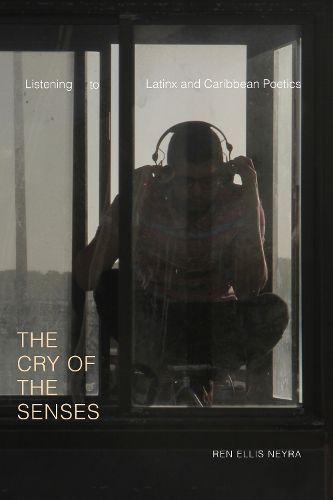Readings Newsletter
Become a Readings Member to make your shopping experience even easier.
Sign in or sign up for free!
You’re not far away from qualifying for FREE standard shipping within Australia
You’ve qualified for FREE standard shipping within Australia
The cart is loading…






In The Cry of the Senses, Ren Ellis Neyra examines the imaginative possibility for sound and poetics to foster new modes of sensorial solidarity in the Caribbean Americas. Weaving together the black radical tradition with Caribbean and Latinx performance, cinema, music, and literature, Ellis Neyra highlights the ways Latinx and Caribbean sonic practices challenge antiblack, colonial, post-Enlightenment, and humanist epistemologies. They locate and address the sonic in its myriad manifestations-across genres and forms, in a legal trial, and in the art and writing of Xandra Ibarra, the Fania All-Stars, Beatriz Santiago Munoz, Edouard Glissant, and Eduardo Corral-while demonstrating how it operates as a raucous form of diasporic dissent and connectivity. Throughout, Ellis Neyra emphasizes Caribbean and Latinx sensorial practices while attuning readers to the many forms of blackness and queerness. Tracking the sonic through their method of multisensorial, poetic listening, Ellis Neyra shows how attending to the senses can inspire alternate, ethical ways of collective listening and being.
$9.00 standard shipping within Australia
FREE standard shipping within Australia for orders over $100.00
Express & International shipping calculated at checkout
In The Cry of the Senses, Ren Ellis Neyra examines the imaginative possibility for sound and poetics to foster new modes of sensorial solidarity in the Caribbean Americas. Weaving together the black radical tradition with Caribbean and Latinx performance, cinema, music, and literature, Ellis Neyra highlights the ways Latinx and Caribbean sonic practices challenge antiblack, colonial, post-Enlightenment, and humanist epistemologies. They locate and address the sonic in its myriad manifestations-across genres and forms, in a legal trial, and in the art and writing of Xandra Ibarra, the Fania All-Stars, Beatriz Santiago Munoz, Edouard Glissant, and Eduardo Corral-while demonstrating how it operates as a raucous form of diasporic dissent and connectivity. Throughout, Ellis Neyra emphasizes Caribbean and Latinx sensorial practices while attuning readers to the many forms of blackness and queerness. Tracking the sonic through their method of multisensorial, poetic listening, Ellis Neyra shows how attending to the senses can inspire alternate, ethical ways of collective listening and being.